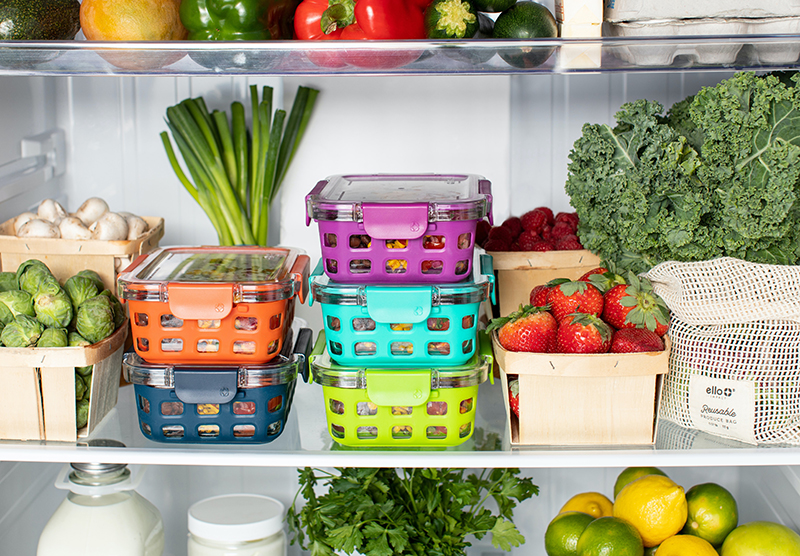Managing your finances as a student isn’t always easy. You may be living away from home or learning to budget your own money for the first time. Thankfully, there are little things you can do, and services here at the University to help you get to grips with your money.
As the theme for National Student Money Week 2022 is sustainable spending, we wanted to run you through our top tips to help you save money and our planet.
1) Plan your meals
Planning your meals is a great way to save and it’s something a lot of students probably wish they’d done sooner. Knowing what you’re eating in advance means you’ll avoid unnecessary spending, like grabbing a meal deal when you’re on campus (£3-£4 a day for one meal can really add up).
To get started, grab a pen and paper and list the meals you’d like to have for the upcoming days/weeks. It’s handy to try and use the same ingredients for several meals to avoid wasting food. For example, if you’re planning to make a chicken wrap for lunch, you could make a chicken pasta dish the following day.
If you have freezer space, batch cook your meals and store the leftovers. It’s a great way to save money as you’ll be spending less on food in the long term, and you have meals on hand to cook.

If you’re new to cooking and don’t know where to start, there are tonnes of online resources full of cheap and easy recipes. Check out:
- Student Eats does exactly what it says on the tin
- BBC Good Food has a handy section of student recipes
- Tesco Real Food allows you to search recipes by categories like ‘budget’ and ‘in season’.
Don’t forget to make a list of items you need to buy for your meals. Also, check your cupboards before heading to the shops, to avoid buying something you already have. For more tips on food shopping like a pro, check out our money-saving shopping tips.
2) Know your food labels
Knowing the difference between ‘use by’ and ‘best before’ is important to ensuring you don’t throw away perfectly edible food. For example, a loaf of bread might be a day past its best before date, but if it looks safe to eat, it probably is. The Food Standards Agency have a great guide to this.
3) Be mindful of your energy usage
You’ll no doubt be aware that reducing energy use is good for the planet, but have you ever thought about its benefits on your bank balance?
This doesn’t necessarily mean taking a big step, like switching energy providers. You can do little things that make a big difference in the long run. This can be something as small as defrosting the freezer – freezers run more energy efficiently when they aren’t overrun with ice. You can find instructions on how to do this online.

There’s loads of advice online about saving energy (and in turn, money) when renting a home, so be sure to check out these resources from the Energy Saving Trust and Students Organising for Sustainability.
4) Switch up your travel
Whether you’ve got time off from your studies and are planning a trip away or you’re just heading into town, it’s important to think about how you’re getting from A to B. For shorter commutes, why don’t you take advantage of green options such as walking, cycling or if the weather isn’t particularly cracking, car sharing. This is both eco-friendly and much cheaper than getting a taxi.
5) Buy unused or unwanted clothes first
Online clothes shopping can be great. There’s lots of choice, delivery is fast but this fad for ‘fast fashion’ is not particularly sustainable, nor is it always as affordable as we think. Buying a cheap white t-shirt a dozen times will actually leave you worse off than if you’d spent just a little more on a better quality one.
Second-hand shopping is also a good idea. You could head to charity shops, or if online is more your thing, you can use apps such as Depop, Vinted and eBay. Buying second-hand is a great way to brighten up your wardrobe at a lower price tag and cost to the environment. You could also make a few quid from your old clothes.

Check out this blog for tips on ego-friendly fashion.
6) Repair, don’t replace
Are you guilty of calling something broken and chucking it out rather than stopping to consider whether there’s an easy fix? Chances are, there might be a way to fix it and you could be saving yourself money. So, next time your kettle makes a funny noise or your toaster won’t pop, be sure to consult iFixit which has loads of free repair guides for electronics and gadgets.
You should also check the item’s warranty or guarantee to see if you’re entitled to a replacement.
So, there we have it, six simple tips to help you save money and live a more sustainable life. We hope you can see that by making small changes, you can feel more in control of your money and do your bit for the environment. With Trimester 1 starting a week earlier in the next academic year, implementing some of these tips now will help you save enough money to enjoy your next level of study.
And if you find yourself struggling with money and in need of a bit more guidance, don’t worry we’ve got your back. You can speak with our Money Advice and Funds Service, they have appointments to help you with money management.




